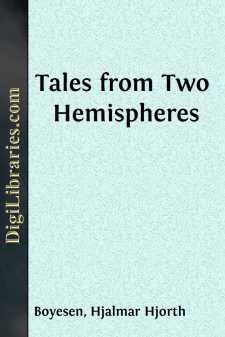Categories
- Antiques & Collectibles 13
- Architecture 36
- Art 48
- Bibles 22
- Biography & Autobiography 813
- Body, Mind & Spirit 142
- Business & Economics 28
- Children's Books 17
- Children's Fiction 14
- Computers 4
- Cooking 94
- Crafts & Hobbies 4
- Drama 346
- Education 46
- Family & Relationships 57
- Fiction 11829
- Games 19
- Gardening 17
- Health & Fitness 34
- History 1377
- House & Home 1
- Humor 147
- Juvenile Fiction 1873
- Juvenile Nonfiction 202
- Language Arts & Disciplines 88
- Law 16
- Literary Collections 686
- Literary Criticism 179
- Mathematics 13
- Medical 41
- Music 40
- Nature 179
- Non-Classifiable 1768
- Performing Arts 7
- Periodicals 1453
- Philosophy 64
- Photography 2
- Poetry 896
- Political Science 203
- Psychology 42
- Reference 154
- Religion 513
- Science 126
- Self-Help 84
- Social Science 81
- Sports & Recreation 34
- Study Aids 3
- Technology & Engineering 59
- Transportation 23
- Travel 463
- True Crime 29
A Good-For-Nothing 1876
Categories:
Description:
Excerpt
Ralph Grimm was born a gentleman, He had the misfortune of coming into the world some ten years later than might reasonably have been expected. Colonel Grim and his lady had celebrated twelve anniversaries of their wedding-day, and had given up all hopes of ever having a son and heir, when this late comer startled them by his unexpected appearance. The only previous addition to the family had been a daughter, and she was then ten summers old.
Ralph was a very feeble child, and could only with great difficulty be persuaded to retain his hold of the slender thread which bound him to existence. He was rubbed with whiskey, and wrapped in cotton, and given mare's milk to drink, and God knows what not, and the Colonel swore a round oath of paternal delight when at last the infant stopped gasping in that distressing way and began to breathe like other human beings. The mother, who, in spite of her anxiety for the child's life, had found time to plot for him a career of future magnificence, now suddenly set him apart for literature, because that was the easiest road to fame, and disposed of him in marriage to one of the most distinguished families of the land. She cautiously suggested this to her husband when he came to take his seat at her bedside; but to her utter astonishment she found that he had been indulging a similar train of thought, and had already destined the infant prodigy for the army. She, however, could not give up her predilection for literature, and the Colonel, who could not bear to be contradicted in his own house, as he used to say, was getting every minute louder and more flushed, when, happily, the doctor's arrival interrupted the dispute.
As Ralph grew up from infancy to childhood, he began to give decided promise of future distinction. He was fond of sitting down in a corner and sucking his thumb, which his mother interpreted as the sign of that brooding disposition peculiar to poets and men of lofty genius. At the age of five, he had become sole master in the house. He slapped his sister Hilda in the face, or pulled her hair, when she hesitated to obey him, tyrannized over his nurse, and sternly refused to go to bed in spite of his mother's entreaties. On such occasions, the Colonel would hide his face behind his newspaper, and chuckle with delight; it was evident that nature had intended his son for a great military commander.
As soon as Ralph himself was old enough to have any thoughts about his future destiny, he made up his mind that he would like to be a pirate. A few months later, having contracted an immoderate taste for candy, he contented himself with the comparatively humble position of a baker; but when he had read "Robinson Crusoe" he manifested a strong desire to go to sea in the hope of being wrecked on some desolate island. The parents spent long evenings gravely discussing these indications of uncommon genius, and each interpreted them in his or her own way.
"He is not like any other child I ever knew," said the mother.
"To be sure," responded the father, earnestly. "He is a most extraordinary child. I was a very remarkable child too, even if I do say it myself; but, as far as I remember, I never aspired to being wrecked on an uninhabited island."
The Colonel probably spoke the truth; but he forgot to take into account that he had never read "Robinson Crusoe."
Of Ralph's school-days there is but little to report, for, to tell the truth, he did not fancy going to school, as the discipline annoyed him....






